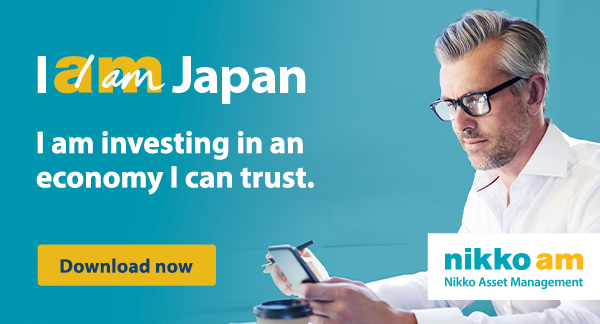Insights
Investment Insights by our experts and thought leaders
New Zealand Equity Monthly (April 2025)
by , — 14 May, 2025
The upcoming New Zealand earnings reporting season is set against a backdrop of intricate global economic factors and trade tensions. Amidst the uncertainty, we assess New Zealand's exposure to the global trade tumult, highlighting potential challenges and supportive factors for the country's economy and companies.
New Zealand Fixed Income Monthly (April 2025)
by , — 13 May, 2025
In our view, New Zealand’s status as a safe haven during times of turbulence has often exceeded that of other markets. Although the New Zealand market is relatively small, it also offers a high degree of quality, and the country's bond and asset prices rarely see as much volatility as in the rest of the world.
Trump’s first 100 days: a new economic regime takes shape
by , — 12 May, 2025
With a new economic regime potentially taking shape, we believe that now is an opportune time to consider an active global fixed income approach to navigate what is likely to be a prolonged period of
uncertainty.
Navigating Japan Equities: Monthly Insights From Tokyo (May 2025)
by , — 09 May, 2025
While the “tariff crisis” may have clouded Japan’s economic outlook, the prospects are certainly not opaque as it may look to reduce the role of US exports. Trade tensions have also prompted the Bank
of Japan to hold monetary policy steady, but the central bank is still seen to be on course to hike interest rates in the longer term as it takes into account the continuous rise in domestic
inflation.
Balancing Act Monthly Insights: Global Multi-Asset (April 2025)
by — 30 April, 2025
One major “plotline” central to the recent series of tariff moves is the tense trade relationship between the US and China. In this issue, we will explore how Chinese bonds have historically offered defensive characteristics and their portfolio roles moving forward.
Financing nature at scale
by , — 24 April, 2025
Nature-related risks and opportunities are rising fast on the global investment agenda. Yet for many investors, finding scalable, credible ways to finance biodiversity remains a challenge. Sovereign green bonds may offer one of the most effective channels to direct capital toward nature-positive outcomes—at scale, and with transparency.
Harnessing Change-Monthly Insights: Asian Equity (March 2025)
by — 18 April, 2025
China’s focus on boosting domestic consumption as their top policy priority in 2025 sets a positive trajectory. The ability of individual countries to provide domestic stimulus is going to be crucial
in limiting the impact of global growth slowdown brought on by US policy uncertainty.
Global Investment Committee review: scenarios for a less certain global outlook
by , — 17 April, 2025
The Global Investment Committee (GIC) held an extraordinary session to review the macroeconomic and market impact of tariffs announced by the US on 2 April, as well as subsequent actions and market
reactions. The GIC’s verdict is that while the US may avoid a recession, risks of slower growth loom large.
Isolation day: the geopolitical impact of Trump’s tariffs on the world
by — 16 April, 2025
The US markets have dominated global portfolio flows, but investors may seek alternative investment destinations if the ongoing change in trade dynamics results in an extended period of elevated US
risk premiums. With US tariff policies setting in motion significant fundamental changes, Asia emerges as a potential destination for capital reallocation.
Chinese property developer bonds: reflecting on the sleeper rally and what lies ahead
by , — 16 April, 2025
Amid the challenges facing China's property market, work is well under way to restore confidence in the housing sector. It remains an uphill task for both Beijing and the country's property groups,
but there are signs of renewed investor interest in the Chinese property bond market as the housing sector's outlook is expected to improve.
On the Ground in Asia-Monthly Insights: Asian Fixed Income (March 2025)
by — 15 April, 2025
Against this more challenging but still benign macroeconomic backdrop, we expect Asian corporate and bank credit fundamentals to stay resilient, aside from a few sectors and specific credits which
may be affected by tariff threats or geopolitical dynamics.
New Zealand Fixed Income Monthly (March 2025)
by , — 14 April, 2025
In a key development for New Zealand’s fixed income market, official figures suggest that the Reserve Bank of New Zealand has won its fight against inflation. We feel that the victory has come at a
cost, however, given the significant impact interest rate rises have had on consumers and businesses.
Impact of additional US tariffs on Asia rates and credit markets
by — 10 April, 2025
The "Liberation Day" US tariffs are expected to strongly impact Asia, where most countries run a trade surplus with the US. Although significant uncertainty is likely to linger, our base case is for
most of the region's economies to negotiate with the US and thus mitigate much of the impact from the initial announcement. Regarding Asian local government bonds, we retain a positive outlook for
several countries that have the capacity to pre-emptively implement monetary and fiscal policy responses. Most Asian corporates and banks also entered 2025 with strong balance sheets and rating
buffers, which could cushion them during this period of high volatility.
New Zealand Equity Monthly (March 2025)
by , — 10 April, 2025
New Zealand’s equity market struggled in the first three months of 2025 amid global uncertainty due to trade tariffs imposed by the Trump administration. Although the market news flow was quiet in
March overall, some notable developments occurred in the area of renewable energy generation.
Navigating Japan Equities: Monthly Insights From Tokyo (April 2025)
by , — 08 April, 2025
The US tariff-induced turmoil could slow the pace of the Bank of Japan’s rate hikes, but the cycle of wages and prices, which has made the central bank confident about monetary tightening, is expected
to remain intact over the longer term.
US tariffs: the high-stakes games begin
by , — 07 April, 2025
The US recently announced a new reciprocal tariff policy. The announcement led to increased stock market volatility globally, reflecting concerns about a potential trade war. There could still be
opportunities for those who can navigate market volatility. The US's strategy, perceived as a high-stakes game, has led to uncertainty. The response from surplus-holding nations and global market
dynamics will be crucial in shaping the economic landscape.
In response to Liberation Day tariffs
by , — 04 April, 2025
We discuss the implications of the expansive new tariffs unveiled by the US and explore the effects on markets, consumer sentiment and potential future outcomes from a Japanese market perspective.
Investing in Future Quality: unearthing diverse alpha sources
by — 03 April, 2025
The Nikko Asset Management Global Equity team's investment philosophy is based on the belief that "Future Quality" companies will outperform over the longer term. When macroeconomic drivers are
uncertain, diverse and unique alpha sources are even more essential.
Balancing Act Monthly Insights: Global Multi-Asset (March 2025)
by — 25 March, 2025
We downgraded our defensive position marginally, while we maintained an overweight to growth assets.
Global Investment Committee’s outlook: regime shift to a more volatile world
by , — 20 March, 2025
With the US “exceptionalism” narrative fading, we see value in global diversification. We observe potential turning points in Europe and China equities that may serve as opportunities to diversify
global portfolios. Volatile market conditions may be the new normal, but opportunities may emerge due to greater differentiation among firms and economies.
ASEAN’s investment potential in a Trump 2.0 world
by , — 18 March, 2025
As the rest of the world contends with the geopolitical and economic implications of Trump 2.0, ASEAN presents a wealth of long-term investment opportunities, driven by strong fundamentals and
supportive policies.
On the Ground in Asia-Monthly Insights: Asian Fixed Income (February 2025)
by — 18 March, 2025
We continue to believe that Asia’s local government bonds are positioned to perform well, supported by accommodative central banks amid an environment of benign inflation and moderating growth.
Harnessing Change-Monthly Insights: Asian Equity (February 2025)
by — 14 March, 2025
While US equities stumbled in February, Asian ex Japan equities gained modestly, helped by continued positive momentum in Chinese tech stocks. China's tech has been the comeback story so far in 2025
after DeepSeek injected some liveliness into the market.
Vietnam ascending
by , — 13 March, 2025
Vietnam is demonstrating a commitment to improving governance, expanding infrastructure and cultivating a more competitive business environment. These efforts position Vietnam to harness its
demographic advantages and capitalise on emerging geopolitical opportunities.
End of “lazy” earnings era may bring fresh opportunities for stock pickers
by , — 13 March, 2025
For 30 years, policy factors like falling corporate tax and interest rates were seen to have generated a bulk of corporate profits, reducing stock-selection opportunities. There are indications that
this policy-driven earnings era is coming to an end, heralding darker days for the average firm. However, firms skilled at raising profitability in core business areas could benefit, thus creating new
opportunities for skilled stock pickers.
New Zealand Fixed Income Monthly (February 2025)
by , — 12 March, 2025
We believe that the Official Cash Rate’s projected path to the 3% level, which we consider likely to be the lowest point of the Reserve Bank of New Zealand’s current easing cycle, may be more noteworthy than the interest rate cut in February.
New Zealand Equity Monthly (February 2025)
by , — 11 March, 2025
February was a challenging month for New Zealand’s stock market following a weak corporate earnings season. Looking ahead, however, we remain confident about the market in 2025 and after. A key reason
for this is the interest rate cutting cycle by the Reserve Bank of New Zealand that is currently underway.
Navigating Japan Equities: Monthly Insights From Tokyo (March 2025)
by , — 10 March, 2025
We assess the factors behind the recent surge in Japan's long-term yields and its implications for equities; we also analyse the robustness of corporate earnings amid the structural economic changes
taking place.
Global Equity Quarterly (Q4 2024)
by — 06 March, 2025
Our focus on franchise and management quality allows us to look forward with optimism, whilst balance sheet quality and valuation discipline provide comfort for when the fireworks start for all the
wrong reasons.
Sustaining the future: the ongoing case for sustainable bonds
by , — 05 March, 2025
Despite a retreat from sustainability initiatives in the US, the sustainable bond market, particularly green bonds, remains strong globally due to continued investor demand, attractive bond yields and
increasing participation from countries like Japan.
Balancing Act Monthly Insights: Global Multi-Asset (February 2025)
by — 27 February, 2025
For January, we reduced our overweight position in growth while maintaining our overweight position in defensives. With respect to growth assets, Trump's second presidency ushers in a new era of US
exceptionalism which has implications on the rest of the global markets.
What the return of interest rates means for Japan
by , — 26 February, 2025
In January, the Bank of Japan raised short-term interest rates to 0.5%, the highest level seen in 17 years, as it continued with its slow but steady withdrawal of accommodation. As the Japanese economy shows ongoing signals of recovery from decades of stagnation, we assess the impact the return of interest rates could have on the country’s households, firms and government.
The Indian healthcare sector is projected to become one of the top global markets by 2030, driven by demographic changes, rising incomes, and expanding insurance coverage, presenting long-term investment opportunities.
Harnessing Change-Monthly Insights: Asian Equity (January 2025)
by — 25 February, 2025
We believe the introduction of DeepSeek may cause a recalibration of capital expenditures. Its introduction has initiated a shift towards a more cost efficient, scalable, and accessible AI landscape.
On the Ground in Asia-Monthly Insights: Asian Fixed Income (January 2025)
by — 21 February, 2025
We see Asian local government bonds being supported by accommodative central banks amid an environment of benign inflation and moderating growth. Within the region, we expect investor appetite for
higher carry bonds such as those of Malaysia, Indonesia and the Philippines to stay firm relative to their regional peers.
A year later: five reasons we're still bullish on Japan
by , — 20 February, 2025
In March 2024, after the Nikkei Index reached an all-time high, we offered five structural reasons why Japan's economic resurgence was more than just a flash in the pan. Almost a year later, those
five reasons remain just as relevant for investors considering an allocation to Japan.
The speed at which AI applications are becoming part and parcel of daily life is breathtaking, with DeepSeek's apparent breakthrough merely accelerating an inevitable, fundamental change in the field.
We firmly believe these breakthroughs are the key components needed for sustainable, long-term returns.
New Zealand Equity Monthly (January 2025)
by , — 13 February, 2025
The New Zealand equity market paused for breath and dipped in January after posting significant gains towards the end of 2024. Some of the market’s decline reflected a dent in enthusiasm for
consumer-facing and cyclical stocks. Global market jitters also appeared to have an impact with disruption risk coming to the fore.
New Zealand Fixed Income Monthly (January 2025)
by , — 12 February, 2025
Although the arrival of a new year has brought some optimism after a tough 2024, economic activity remains subdued in New Zealand. The Reserve Bank of New Zealand may further cut interest rates in
2025 with global uncertainties impacting the country's economy.
Navigating Japan Equities: Monthly Insights From Tokyo (February 2025)
by , — 07 February, 2025
This month we discuss signs of improvement in the Bank of Japan (BOJ)'s market communication following its recent rate hike; we also focus on Japan's economic resilience amid a flurry of trade-related
headlines impacting the markets.
Balancing Act: Global Multi-Asset Quarterly (Q4 2024)
by — 05 February, 2025
In the 2024 October-December quarter, risk assets largely moved in line with expectations surrounding the US presidential election. We maintained an overweight position on growth assets over the
quarter amid indications of resilient economic conditions. Our view of defensives improved with higher yields having made this group of asset classes more attractive.
The Fed takes a leaf from the BOJ’s book and applies gradualism
by , — 30 January, 2025
The Federal Reserve is seemingly following in the footsteps of the Bank of Japan and adopting a strategy of monetary policy gradualism. This measured approach is aimed at balancing rate cuts with inflation expectations and stabilising the economy without triggering price volatility.
Balancing Act Monthly Insights: Global Multi-Asset (January 2025)
by — 29 January, 2025
We retained our positive view on growth on resilient economic data and dovish monetary policies globally as inflation is now closer to central bank targets worldwide. Our view of defensives improved
as higher yields now make the asset class marginally more attractive.
BOJ hikes amid trade uncertainty: focus on AI’s indirect role in risk reduction
by , — 27 January, 2025
The BOJ increased overnight rates by 25 basis points, raising the Mutan call rate to its highest since 2008. The decision reflects the BOJ's belief that the economy is performing in line with its
view, with positive real wage growth and an upgraded near-term inflation outlook. Uncertainty over US tariffs persists, but Japan's need for AI-related technologies may play an indirect role in
reducing trade-related risks.
How Japan can safeguard against US tariffs
by , — 16 January, 2025
The future of US policy is surrounded by great uncertainty, particularly regarding tariff measures that the US may impose upon its trading partners. We explore options that are available to Japan to
safeguard against tariffs the US may decide to implement.
Harnessing Change-Monthly Insights: Asian Equity (December 2024)
by — 16 January, 2025
Despite concerns about Donald Trump's impact on emerging markets, historical data shows that during his first term as US president, China, South Korea and Taiwan outperformed the S&P 500 although they
are the most trade-sensitive equity markets.
On the Ground in Asia-Monthly Insights: Asian Fixed Income (December 2024)
by — 15 January, 2025
We expect Asian local government bonds to perform well in 2025, supported by accommodative central banks amid an environment of benign inflation and moderating growth. The ongoing global easing cycle is expected to lower global yields, further supporting Asian bond markets.
Politics, governance reform and engagement opportunities in Japan equities
by , — 14 January, 2025
Following the surprise result of the snap election in October 2024, Japanese politics has entered a very unique phase. We discuss how the fluid political situation could positively impact the Japanese
market, which is already feeling the benefits of corporate governance reform, and assess how engagement could play a role in improving shareholder returns in such an environment.
Navigating Japan Equities: Monthly Insights From Tokyo (January 2025)
by , — 10 January, 2025
This month we discuss how a rise in delistings reflects efforts to create a more attractive equity market; we also assess ways in which a merger by large automakers in Japan could stimulate reforms
beyond the industry.
Balancing Act Monthly Insights: Global Multi-Asset (December 2024)
by — 26 December, 2024
We retain our positive view on growth on resilient economic data and dovish monetary policies globally as inflation starts to ease worldwide. As for defensives, sovereign bond curves are steepening
amid the beginning of the global rate-cutting cycle and bonds are gradually becoming more attractive.























































